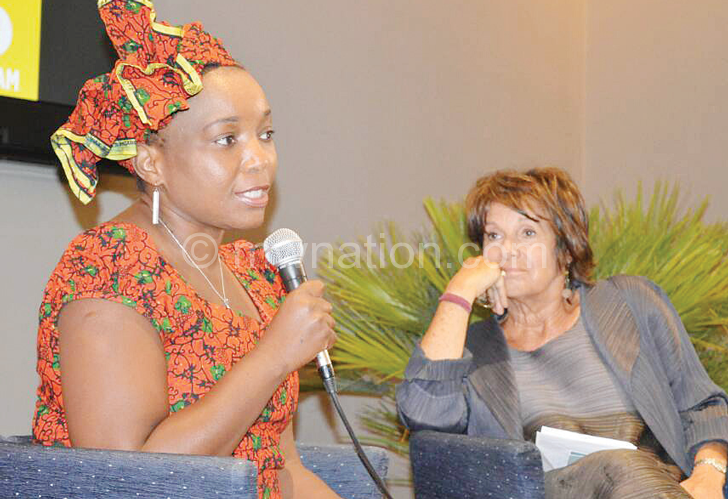‘Inequality needs urgent redress’
Against reports that the gap between the rich and the poor continues to widen, various civil society organisations (CSOs) across the globe converged in Taormina, Italy last week to petition G7 leaders on various social-economic issues ahead of the G7 summit. Our reporter FATSANI GUNYA engaged LUSUNGU DZINKAMBANI, an NGO expert with Oxfam in Malawi, who says the issue of inequality needs urgent redress to help prevent it from escalating into a full blown crisis. In this interview, she also unearthed some ‘tax havens’ being enjoyed by various multinational firms at the expense of the poor-Excerpts.
Why was it necessary for you to come for this G7 Summit and make a presentation?
This is a forum where world leaders meet and discuss policy issues that have a bearing on all of us especially the developing countries, including climate change, food security. The event is also a focus on many people fighting for a fairer world and the G7 summit offers them a chance to engage with the media on issues on inequality and poverty. Key development and economic policies are discussed and agreed upon at such forums. It is therefore quite important that our voices should be among those heard here. Personally, I feel honoured to have been able to travel here and to have this opportunity to share with people attending the G7 Summit some of the key issues that affect my country Malawi and other developing countries.
What misgivings do you, as CSOs, have against the G7 leaders for you to urge them to ‘open their eyes and see’?
Basically, our call to the G7 leaders is about asking for demonstration of commitment to issues of global interest that matter for people living in poverty. We call upon the G7 to be outward focusing. They should appreciate that their economies are supported by our resources. We would like to see them showing that they are concerned with issues of the global family.
Secondly as part of the global family, they need to be concerned by challenges that have been faced by southern countries. In the case of Malawi; I feel they need to ensure their concern on the growing inequalities manifested by inadequate access to basic services such as health, the continued humanitarian crisis—especially people who are missing their food entitlements.
How serious is inequalities in Malawi like to warrant such calls from the global leaders?
In Malawi, Economic inequality—the gap between the rich and the rest is growing. In 2004, the richest 10 percent of Malawians consumed 22 times more than the poorest 10 percent. By 2011, this had risen to see the richest 10 percent spending 34 times more than the poorest. Yet even this shocking statistic is likely to be a significant underestimation
Robust economic growth during this time shows that while resources are being generated, they are clearly accruing to the rich and leaving the majority trapped in poverty. One in three Malawians needed food aid during last year’s hunger crisis, while allegations of corrupt officials continue to hound the government. Malawi’s growing gap is threatening progress made across poverty reduction, health and education outcomes, and compounding gender inequality. In 2015, Oxfam found that a further 1.5 million Malawians will be poor by 2020 if nothing is done to tackle inequality. Gender inequality is already worse in Malawi than almost anywhere else in the world. Poor women will continue to be at the bottom of the pile if wealth and gender imbalances are not both addressed.
Why do we still have such levels in inequalities and how do they impact society?
There are several drivers of inequality in Malawi. Firstly poor investment in essential services such as health and education in Malawi is a big challenge. You will notice that over the past 10 years, Malawi has not been able to allocate the required 15 per cent of its national budget towards health service delivery. Secondly fraud and corruption in the public service delivery system. The various forms of ‘Cashgate’ hamper public service delivery system.
On the other hand, the government’s lack of capacity to invest in public service delivery is due to inadequate resources due to inadequate generation of tax from international investors, some of whom use unfair treaties to deny Malawi an opportunity to get a fair share of the revenue generated. The other key challenge is the fact that some donors have still withheld direct budgetary support to the government of Malawi. The withdrawal of such a large amount of predictable, on-budget aid – specifically for the health, education and transport sector—has significantly hampered the government’s capacity to provide essential public services.





